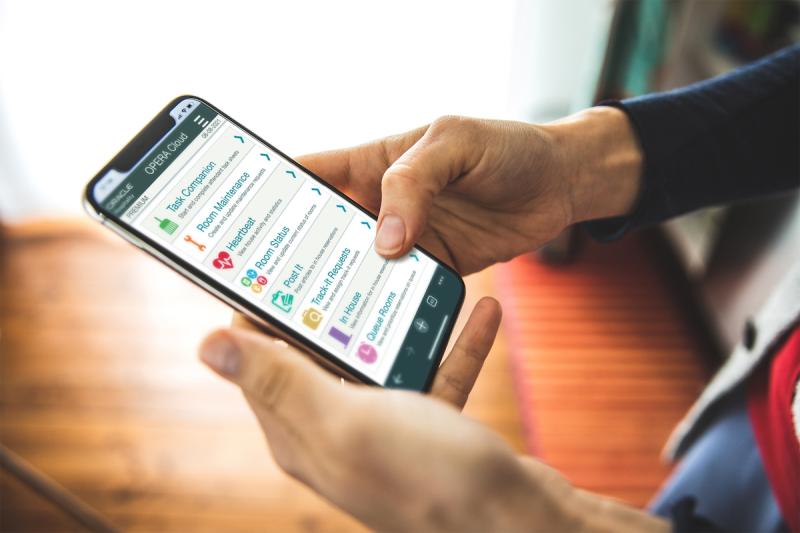Technology has enabled users to be more strategically focused and leave the time-consuming, tactical activities to systems that are designed to do the heavy lifting in revenue management. However, users, managers, owners and brands now require (and demand) products that solve more than just setting the right price for the right room at the right time, said Mike Chuma, IDeaS VP of global marketing.
"With the advent of faster, more powerful and scalable solutions, technology can now better address even the most complex environments," he said. "Our clients have different definitions of revenue management success today than they did 10, five, or even two years ago. Increasing 'revenue' has evolved into driving 'quality revenue' that impacts the bottom line."
The revenue-management ecosystem has become more and more complex, and technology is allowing revenue managers to process huge amounts of data to make sense of that complexity, said Geert Mol, senior manager, product management for Infor RMS. "Through the inclusion of data sources from both inside and outside the hotel, we are able to constantly improve certainty on forecasts, leading to better decision making and the ability to be proactive instead of reactive in revenue management."
Not only the certainty in the forecast, but also the time to compute and adjust that forecast is being boosted by technology, Mol continued. "A multidimensional demand forecast system produce in real-time would take a revenue manager ages to compute, so the technology increases speed and precision of revenue-management actions," he said.
Artificial intelligence and automation have helped spur evolution in the revenue-management field, said Jason Bryant, VP at Nor1, which is part of Oracle Hospitality. "The fundamental objective is based on real-time continuous feedback," he said. "The big impact that hotels will see is from the combination of automation and machine learning together."

As technology advances continue to expand, so will the opportunities to make more and better data-driven decisions. As measurements evolve from rates to net rates, revenue per available room to gross operating profit per available room and revenue per available meter/foot to profit per available space time, the revenue-management and revenue-intelligence tools now can optimize any number of variables and provide actionable insights that allow hotels to meet their goals—however they might define them, Chuma continued.
Many modern revenue-management systems rely on artificial intelligence and predictive analytics to automate much of the back-end work revenue leaders previously performed manually, such as data entry, building dashboards and sharing reports. “Artificial intelligence allows revenue and business-intelligence systems to compile, compute and analyze thousands of data points in real time, which is simply beyond human capability,” said Jason Freed, hospitality data evangelist at MyDigitalOffice. “Systems can identify sudden spikes in demand—a popular event is announced nearby, for example— and react by adjusting rate in real-time.”
As hotels have matured and extended data capabilities, the sheer volume of data has increased tremendously. As this volume has increased, the time and effort required to parse through that data and capture insights has become more difficult. "In concert, the reporting complexities have risen as revenue-management teams create newer reports to support newer use cases for pricing and decision management," LodgIQ CEO David Millili said. "Automation has abstracted away repetitive tasks such as reporting and data analysis and has allowed for quicker decision-making and more time being allocated to strategic initiatives like pricing and product placement."
Controlled automation gives hoteliers the power to decide when and what to automate. It enables revenue leaders to easily define segments, room types, stay days or seasons they want to run automatically, manually or in a hybrid format, said Chris Crowley, chief revenue officer at Duetto. What’s more, revenue managers increasingly are being placed in cluster roles. Automation is vital when managing a portfolio of properties, he continued.
"In addition, modern solutions attract the brightest talent, who don’t want to have to perform mundane tasks such as data entry," Crowley said. "They want a system that offers the efficiencies of controlled automation so that they can work to influence the direction of business and strategy of a hotel business."
What Hoteliers Should Know about Revenue Management Post-Pandemic
After the pandemic the big buzzword was “uncertainty” but here is why that really matters in revenue management: In its simplest definition, we always define revenue management as selling the right room to the right person at the right time for the right price, Mol said. "You would think that a revenue manager maybe has a couple of tens to hundreds of decisions to make each day, and that’s feasible to do manual or with a rule-based system," he said. "But what revenue management is truly all about is the minimization of risk—the risk of selling the wrong room to the wrong person at the wrong time for the wrong price and losing out on opportunities that way."
To minimize that risk, revenue managers need to weigh thousands of decisions each day about how not to sell their property, based on complex uncertainty calculations of price and demand. After the pandemic, the risk of selling “wrong” became exponentially bigger with uncertainty at the level it was, and so the need for a science-based approach with a system that is constantly able to adapt to the latest conditions, make complex risk assessments and run through thousands of decisions in real-time has become even more crucial, Mol continued.

Revenue managers need to take their skill set and knowledge beyond the basics and they need to understand the basics of machine learning. "It's a real-time feedback loop and they need to understand how it all works and then they will be in a much better position to leverage the technology in their day-to-day operations," Bryant said.
Demand will continue to be variable because hoteliers will continue to experience multiple overlapping market crises on a recurring basis—from pandemics to wars to recession—which means they will need to adopt very flexible pricing models, especially in the high-volume hub city destinations.
"However, there are opportunities here," Crowley said. "This variable demand should drive hotels to focus more on the repeat customer, using personalization and emotional trust appeal to build closer connections and loyalty with the individual guest. The value of this connection between hotel and guest will only grow in importance in the years to come. We will see hotels working in a more fluid and more targeted way with their individual guests and business partners. The more personalized your offers, the higher your conversion rate."
Booking windows are lengthening in most markets. "As the pandemic has waned and regulations have been lifted, fewer bookings are coming inside of three days and instead the 30+ segment has seen the most growth," Freed said. "This leads to stronger pricing power and less pressure to discount as day-of-arrival approaches."
In addition, guests have changed. "Odds are the type of guests staying at your property has changed since 2019," Chuma said. "Buying habits are different, booking windows are shorter and segments have blended. Literally, bleisure travel, while not a new trend, continues to grow. Bleisure trips in the U.S. are up 25 percent. It’s more important than ever to have a grasp on who’s staying at your hotel, what their travel motivation is and what channels they use to shop and book."
Group business has returned to near 2019 levels in many markets, but the types of groups are different, Freed said. Revenue and sales leaders can target new types of business, such as companies that need to bring remote teams together more frequently.
